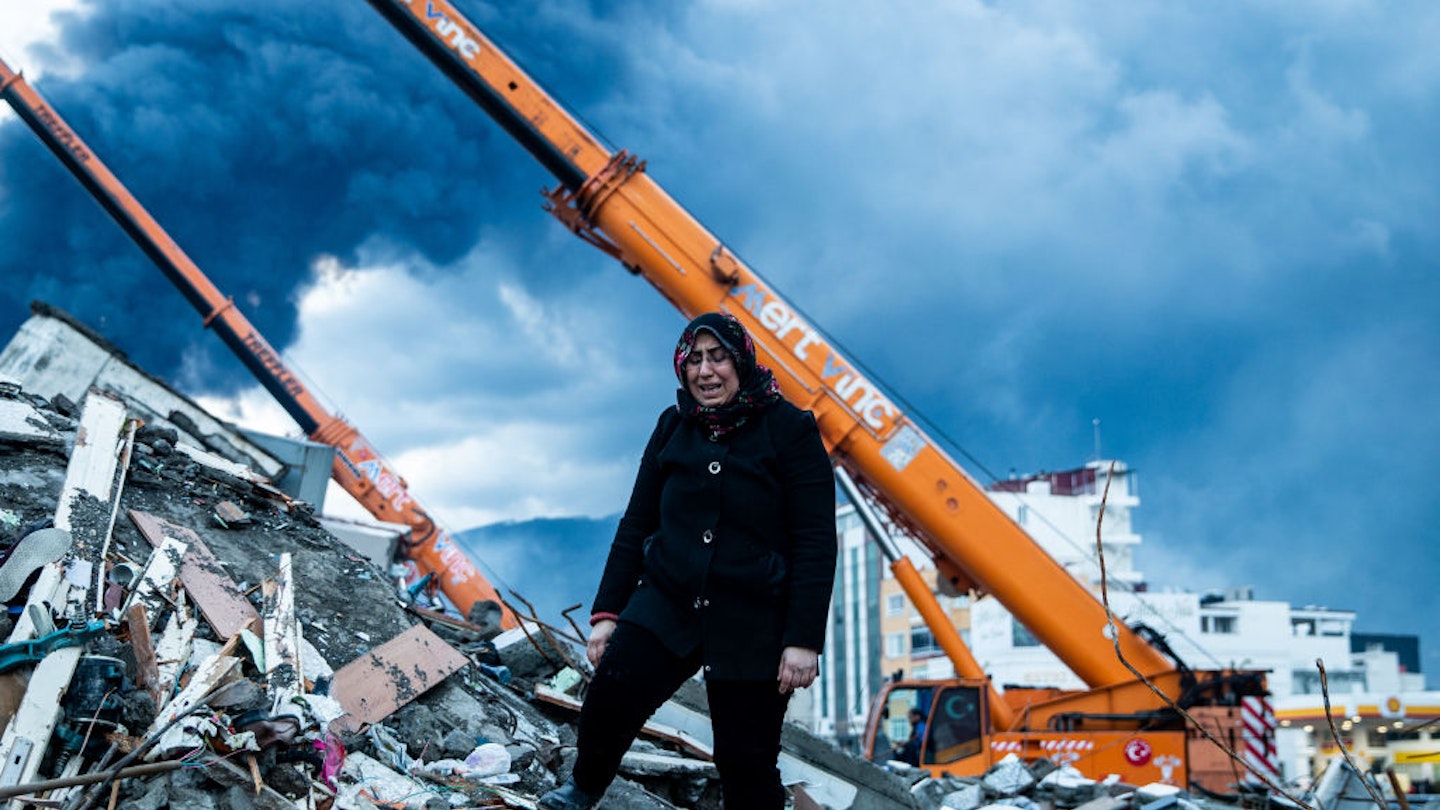As the death toll following the devastating earthquake in Turkey and Syria surpasses the 17,000 mark, many of us are looking for ways to help those affected by the natural disaster.
The first of the powerful tremor hits Turkey’s south-eastern regions, bordering Syria, in the early hours of Monday morning, with a second following 12 hours later further north. According to the BBC, Turkey’s current death toll stands at over 3,549 with 5,775 building confirmed to have collapsed. Across the border in Syria, where many families were already displaced due to conflict, the number most recently reported by the BBC is over 1,600.
The first quake, measuring 7.8 on the seismic magnitude scale, is reported to be the strongest ever recorded in Turkey. The second, affecting central Turkey, measured 5.6.
Across the world charities and governments are working on providing targeted emergency help to the thousands affected by the catastrophe. As well as international aid from a reported 70 countries according to Reuters, Turkey’s president Tayyip Erdoğan has declared a state of emergency lasting three months in the ten provinces worst affected.
Currently the number of survivors pulled from the rubble of collapsed buildings is estimated to be at over 8,000, with Erdoğan saying that 13.5m of the country’s population of 85m are likely to have been affected. Casualties are expected to rise significantly, with an earthquake in the region in 1999 of a similar scale claiming more than 17,000 lives.
Speaking to The Guardian, Professor of Public Health at the University of Sheffield Andrew Lee said: ‘The full scale of the disaster will not be clear for a few days yet, and the total number of casualties will probably increase. The risk of further aftershocks remains, and damaged buildings pose a further hazard.
‘The consequences are not just short term but are also longer term, such as through mental health effects (eg post-traumatic stress disorder) and the need for rehabilitation for those disabled by earthquake related injuries. The recovery from such disasters often takes many months and years afterwards.’
Charities you can donate to, to help victims of the Turkish Syrian earthquake
In order for the Disasters Emergency Committee to launch an appeal, a crisis must meet three criteriaincluding ‘reasonable grounds for concluding that a public appeal would be successful, either because of evidence of existing public sympathy for the humanitarian situation or because there is a compelling case indicating the likelihood of significant public support should an appeal be launched.’
With the death toll now in the tens of thousands, the DEC has now launched it's appeal, which you can donate to here. Some of the 15 registered charities that the DEC is made up of are also running their own appeals and sending urgent support to the region.
These include:
The UNHCR, the UN Refugee Agency, tells the Guardian, ‘Thousands of people’s lives were devastated in one night when the first of these terrible earthquakes struck. Many families who had previously fled from conflict in Syria were already struggling to cope with the cold winter, and now are facing this new crisis.
‘UNHCR is already working to help people affected by these earthquakes and assessing what more needs to be done. Every donation will help us to deliver essential aid to the people affected.’
Donate clothes and supplies locally
As ever, emergency grassroots aid efforts have been set up locally in the UK to deliver clothes and supplies directly to the region. While financial donations are preferred for most charities, The International Blue Crescent Relief and Development Foundation (IBC) has asked for supplies including warm clothes, basic first aid, tents, heaters and food.
Follow this link to find your nearest drop off centre.
It’s also worth keeping an eye on your social media as more grassroots efforts in your area spring up. However, after an excess of supply donations following the outbreak of war in Ukraine last year, there were reports from the ground of traffic congestion in Poland (Ukraine’s neighbour, where aid was mainly sent) and supply far outstripping demand, with some academics suggesting donations could even end up in landfill. As always, cash is best.
Gather (and share) your news from reputable sources
The rise of fake news shows no sign of waning and already in Turkey officials report that four arrests have been made of individuals posting ‘provocative’ content in relation to the disaster. From the safety of the UK, though, it’s just as important not to share unverified facts or figures and risk contributing to a damaging culture of misinformation.
From the covid pandemic to US politics and natural disasters, the spreading of fake news can hinder rather than help efforts to alleviate catastrophe, but there are ways to ensure your social media posting stays on the right side of history, including fact checking and only sharing content from reputable sources (and not your mate from college’s hot take).
This guide from academic journal The Conversation will help you to avoid spreading misinformation.
